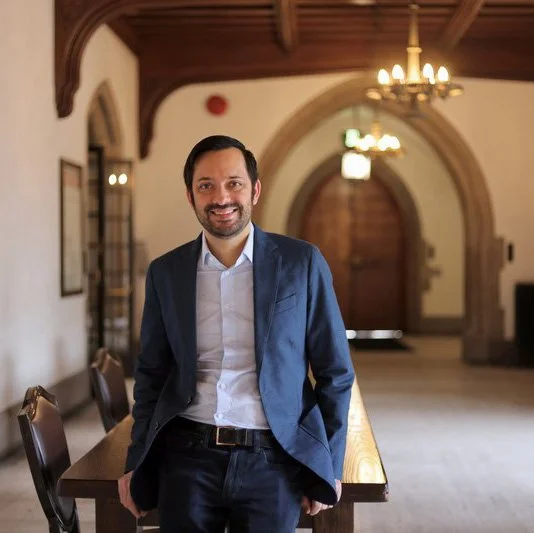Machine Learning from the Perspective of Physics
Speaker: Yonatan (Yoni) Kahn, Assistant Professor, Department of Physics
Date: Tuesday, November 11, 2025
Time: 11:00 a.m. – 12:00 p.m.
Location: Hybrid 700 University Avenue, 9th floor, Toronto and online
Abstract:
Neural networks are the backbone of artificial intelligence and machine learning systems. Despite the immense success of neural networks at a variety of real-world problems, the theory of deep (multi-layer) neural networks is still in its infancy. There are many tantalizing analogies between neural networks and situations we encounter in all branches of physics: the interactions of many entities which give rise to simple collective behaviour are strongly reminiscent of statistical mechanics and condensed matter physics, and the data structures encountered in physics may provide tractable models for how neural networks learn from complex real-world data. This talk will explore the perspective that physics may bring towards understanding neural network architectures and algorithms.
Speaker Biography:
Yonatan Kahn is an assistant professor in the Department of Physics. He is a theoretical physicist whose research focuses on dark matter and its detection strategies, as well as on the theory of machine learning from a high-energy physics perspective. Prior to joining the Faculty of Arts & Science, Kahn was an assistant professor at the University of Illinois Urbana-Champaign and held postdoctoral positions at the Kavli Institute for Cosmological Physics (KICP) at the University of Chicago and Princeton University before that.
Professor Kahn received his PhD in 2015 from the Massachusetts Institute of Technology. He holds degrees in music, physics, and mathematics from Northwestern University (BA, BMus 2009) and completed Part III of the Mathematical Tripos with Distinction at the University of Cambridge in 2010, supported by a Churchill Scholarship. In 2016, he received the American Physical Society’s J.J. and Noriko Sakurai Dissertation Award in Theoretical Particle Physics, and in 2022, he was selected as a Kavli Frontiers of Science Fellow by the National Academy of Sciences in the US.

